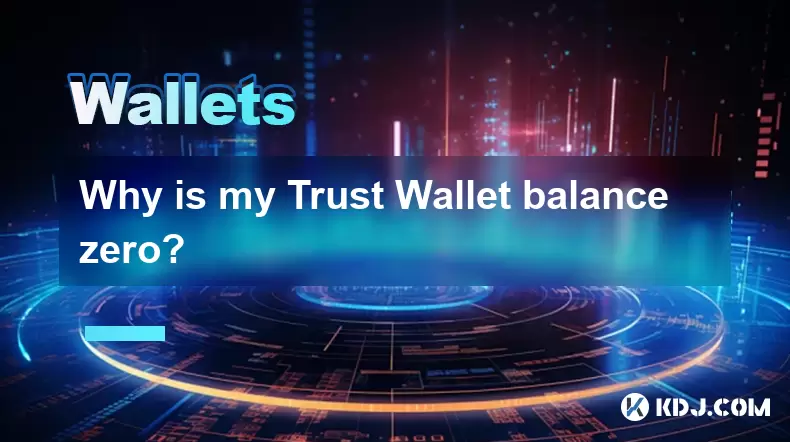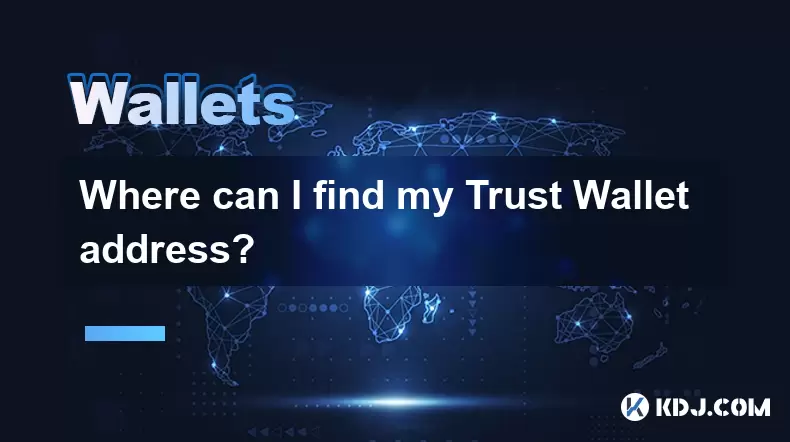-
 Bitcoin
Bitcoin $112700
-0.57% -
 Ethereum
Ethereum $3409
-3.35% -
 XRP
XRP $2.800
-6.95% -
 Tether USDt
Tether USDt $0.9998
0.05% -
 BNB
BNB $741.2
-2.50% -
 Solana
Solana $158.2
-4.71% -
 USDC
USDC $0.9999
0.02% -
 TRON
TRON $0.3220
-1.23% -
 Dogecoin
Dogecoin $0.1937
-6.71% -
 Cardano
Cardano $0.6987
-4.25% -
 Hyperliquid
Hyperliquid $36.60
-1.92% -
 Sui
Sui $3.336
-6.21% -
 Stellar
Stellar $0.3689
-6.39% -
 Chainlink
Chainlink $15.71
-3.85% -
 Bitcoin Cash
Bitcoin Cash $527.4
-2.19% -
 Hedera
Hedera $0.2295
-7.74% -
 Avalanche
Avalanche $21.05
-3.87% -
 Ethena USDe
Ethena USDe $1.001
0.02% -
 Toncoin
Toncoin $3.539
-1.75% -
 UNUS SED LEO
UNUS SED LEO $8.964
0.14% -
 Litecoin
Litecoin $105.8
-0.13% -
 Shiba Inu
Shiba Inu $0.00001184
-3.50% -
 Polkadot
Polkadot $3.501
-3.07% -
 Uniswap
Uniswap $8.831
-2.88% -
 Dai
Dai $1.000
0.03% -
 Monero
Monero $290.4
-3.99% -
 Bitget Token
Bitget Token $4.242
-1.47% -
 Pepe
Pepe $0.00001009
-5.08% -
 Cronos
Cronos $0.1253
-6.28% -
 Aave
Aave $249.9
-3.27%
How to export private keys in Rabby Wallet? Steps for safely exporting private keys
Rabby Wallet offers a secure way to export private keys; ensure you back up your wallet and use a secure environment to protect your funds.
May 19, 2025 at 06:21 am

Introduction to Rabby Wallet
Rabby Wallet is a versatile and user-friendly cryptocurrency wallet that supports a wide range of digital assets. It is known for its robust security features and intuitive interface, making it a popular choice among crypto enthusiasts. One of the critical features of any wallet is the ability to export private keys, which is essential for users who need to manage their funds across different platforms or for backup purposes. In this article, we will guide you through the detailed process of exporting private keys from Rabby Wallet, ensuring you do it safely and securely.
Understanding Private Keys
Before diving into the export process, it's important to understand what private keys are. Private keys are essentially the secret codes that allow you to access and manage your cryptocurrency. They are crucial for signing transactions and proving ownership of your assets. Losing your private keys means losing access to your funds, so handling them with care is paramount.
Preparing for Export
Before you begin the process of exporting your private keys, it's crucial to take some preparatory steps to ensure the safety of your funds. Here are the steps you should follow:
- Backup your wallet: Ensure you have a recent backup of your Rabby Wallet. This can be done by exporting your wallet's seed phrase or mnemonic.
- Secure environment: Make sure you are in a secure environment, free from prying eyes and potential surveillance. Turn off any internet-connected devices that you are not using.
- Antivirus and malware check: Run a full system scan with up-to-date antivirus software to ensure your computer is free from malware that could compromise your private keys.
Steps to Export Private Keys in Rabby Wallet
Now, let's go through the detailed steps to safely export your private keys from Rabby Wallet:
- Open Rabby Wallet: Launch the Rabby Wallet application on your device.
- Navigate to Settings: Click on the settings icon, usually located in the top right corner of the wallet interface.
- Select Wallet Management: Within the settings menu, find and select the option for "Wallet Management" or a similar label.
- Choose the Wallet: From the list of wallets, select the one from which you want to export the private key.
- Access Advanced Options: Look for an option labeled "Advanced" or "Export Options" and click on it.
- Export Private Key: You should see an option to "Export Private Key" or "Show Private Key". Click on this option.
- Confirm Identity: You may be prompted to enter your wallet password or confirm your identity through other means. Follow the on-screen instructions to verify your identity.
- View or Copy the Private Key: Once your identity is confirmed, the private key will be displayed on the screen. You can either copy it to the clipboard or write it down manually. Ensure you do this carefully and accurately.
- Secure the Private Key: Immediately after obtaining the private key, secure it in a safe place. This could be a hardware wallet, a secure offline storage device, or a safe deposit box.
Safely Storing Exported Private Keys
After exporting your private keys, it's crucial to store them securely to prevent unauthorized access to your funds. Here are some best practices for storing your private keys safely:
- Use a Hardware Wallet: Consider transferring your private keys to a hardware wallet, which offers an additional layer of security by keeping your keys offline.
- Offline Storage: If you cannot use a hardware wallet, store your private keys on an offline storage device, such as a USB drive kept in a safe place.
- Physical Safekeeping: Write down your private keys and store them in a secure physical location, such as a safe deposit box or a fireproof safe.
- Encryption: If you must store your private keys digitally, encrypt them with strong encryption software and store the encrypted file securely.
Common Mistakes to Avoid
When exporting and handling private keys, there are several common mistakes that you should be aware of and avoid:
- Sharing Keys: Never share your private keys with anyone, as this can lead to theft of your funds.
- Storing Keys Online: Avoid storing your private keys on internet-connected devices, as they can be vulnerable to hacking.
- Insecure Storage: Do not store your private keys in easily accessible places, such as unsecured notes apps or unencrypted files.
- Not Verifying: Always double-check the accuracy of the private key you have exported to ensure it matches the one in your wallet.
Frequently Asked Questions
Q: Can I import the exported private key back into Rabby Wallet?
A: Yes, you can import the private key back into Rabby Wallet. To do this, go to the "Wallet Management" section, select "Import Wallet", and choose the option to import via private key. Enter the private key you exported, and follow the on-screen instructions to complete the import process.
Q: Is it safe to export private keys to multiple devices?
A: Exporting private keys to multiple devices increases the risk of key compromise. It's best to limit the number of devices that store your private keys and ensure each device is secure. If you must use multiple devices, consider using a hardware wallet for the primary storage of your keys.
Q: What should I do if I suspect my private keys have been compromised?
A: If you suspect your private keys have been compromised, immediately transfer your funds to a new wallet with new private keys. Monitor your old wallet for any unauthorized transactions and consider reporting the incident to the relevant cryptocurrency community or support team for further guidance.
Q: Can I export private keys for all types of cryptocurrencies in Rabby Wallet?
A: Rabby Wallet supports exporting private keys for most cryptocurrencies it supports. However, some cryptocurrencies may use different methods for key management, so it's important to check the specific documentation for each cryptocurrency within the wallet to ensure you can export the private keys as needed.
Disclaimer:info@kdj.com
The information provided is not trading advice. kdj.com does not assume any responsibility for any investments made based on the information provided in this article. Cryptocurrencies are highly volatile and it is highly recommended that you invest with caution after thorough research!
If you believe that the content used on this website infringes your copyright, please contact us immediately (info@kdj.com) and we will delete it promptly.
- Ruvi AI: The Millionaire Maker with a Price Spike on the Horizon?
- 2025-08-03 02:50:12
- DOGE, Utility Coins, and Smart Money: A New Era for Crypto Investing?
- 2025-08-03 02:50:12
- Punisher Coin: Is This Meme Coin the Crypto Investment with 100x ROI Potential?
- 2025-08-03 03:30:12
- Ruvi AI, XRP, and CoinMarketCap: Decoding the Crypto Buzz
- 2025-08-03 03:30:12
- Solana, WeWake, and Presales: What's Hot in the Crypto Space?
- 2025-08-03 03:35:25
- MoonBull, LOFI Pepe: Navigating the Meme Coin Mania and the Best Crypto Whitelist
- 2025-08-03 04:10:12
Related knowledge

What is a watch-only wallet in Trust Wallet?
Aug 02,2025 at 03:36am
Understanding the Concept of a Watch-Only WalletA watch-only wallet in Trust Wallet allows users to monitor a cryptocurrency address without having ac...

How to switch between networks in Trust Wallet?
Aug 02,2025 at 12:36pm
Understanding Network Switching in Trust WalletSwitching between networks in Trust Wallet allows users to manage assets across different blockchains s...

How to check my full transaction history on Trust Wallet?
Aug 02,2025 at 09:24am
Understanding Transaction History in Trust WalletTrust Wallet is a widely used non-custodial cryptocurrency wallet that supports a broad range of bloc...

Why is my Trust Wallet balance zero?
Aug 02,2025 at 03:49am
Understanding Trust Wallet Balance Display IssuesIf you're seeing a zero balance in your Trust Wallet despite knowing you've previously received or se...

What happens if I send crypto to the wrong network in Trust Wallet?
Aug 02,2025 at 07:22pm
Understanding Network Compatibility in Trust WalletWhen using Trust Wallet, it's essential to understand that different cryptocurrencies operate on di...

Where can I find my Trust Wallet address?
Aug 02,2025 at 06:07pm
Understanding Your Trust Wallet AddressYour Trust Wallet address is a unique identifier that allows others to send you cryptocurrency. It is a string ...

What is a watch-only wallet in Trust Wallet?
Aug 02,2025 at 03:36am
Understanding the Concept of a Watch-Only WalletA watch-only wallet in Trust Wallet allows users to monitor a cryptocurrency address without having ac...

How to switch between networks in Trust Wallet?
Aug 02,2025 at 12:36pm
Understanding Network Switching in Trust WalletSwitching between networks in Trust Wallet allows users to manage assets across different blockchains s...

How to check my full transaction history on Trust Wallet?
Aug 02,2025 at 09:24am
Understanding Transaction History in Trust WalletTrust Wallet is a widely used non-custodial cryptocurrency wallet that supports a broad range of bloc...

Why is my Trust Wallet balance zero?
Aug 02,2025 at 03:49am
Understanding Trust Wallet Balance Display IssuesIf you're seeing a zero balance in your Trust Wallet despite knowing you've previously received or se...

What happens if I send crypto to the wrong network in Trust Wallet?
Aug 02,2025 at 07:22pm
Understanding Network Compatibility in Trust WalletWhen using Trust Wallet, it's essential to understand that different cryptocurrencies operate on di...

Where can I find my Trust Wallet address?
Aug 02,2025 at 06:07pm
Understanding Your Trust Wallet AddressYour Trust Wallet address is a unique identifier that allows others to send you cryptocurrency. It is a string ...
See all articles

























































































